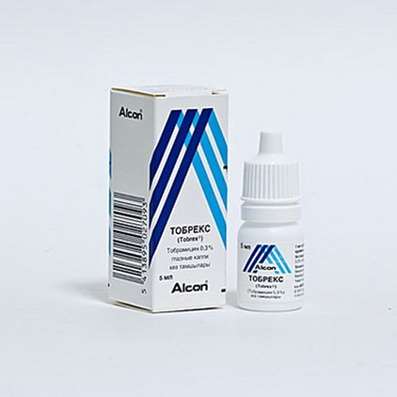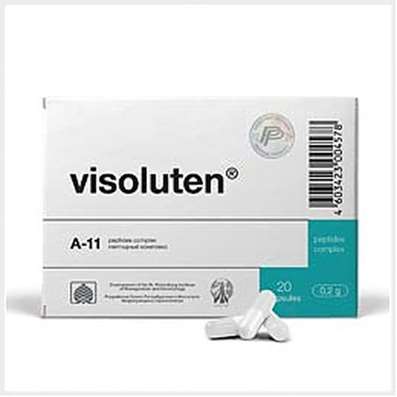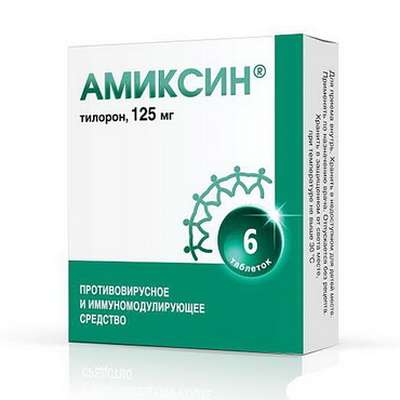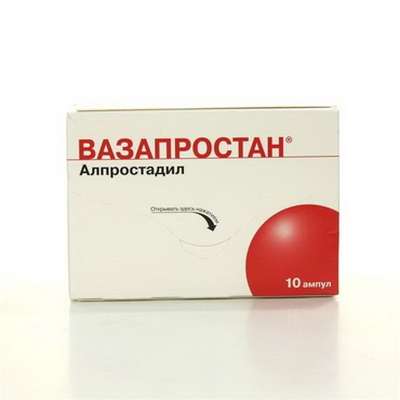Down's syndrome (Mongolism, Trisomy 21)
12 Dec 2016
Geneticist Dr. Doping tells the causes of Down syndrome, prenatal screening and experimental treatments. What is the reason for the development of Down syndrome? How is the system of early prenatal screening for hereditary and congenital diseases of the fetus? What developed experimental methods for treating Down's syndrome?
Down’s Syndrome (Mongolism, Trisomy 21) - is the most common hereditary disease. Its frequency is 1 at 600-800 births. It is connected with the fact that the child in each cell has an extra 21st chromosome. This is a small chromosome does not contain so many genes, but an excess of chromosomal material leads to very serious consequences. These children have a very definite look, they are different from all others, so that the midwife can diagnose at birth. The main problem, of course - it is mental retardation, and may have some malformations. In particular, it is not uncommon heart disease.
Down syndrome is known for a long time, it has been described for a long time, but what is the reason for its excess of chromosomal material, set French cytogenetics, scientist, physician Lejeune in the 60s of the last century. When the cause of the disease has been established, the main efforts of Lejeune were sent out to find some way of treatment, the method of correction.
However, it is a great success today in the treatment of this disease is not present. What a difference with such a large genetic defect is not yet possible. To correct the use pedagogical, educational measures, these children are developing. To do this, there are organizations - working in Moscow organization "Downside Up", where psychologists, teachers who help children grow and develop children's families.
Down's syndrome occurs, usually as a result of a new mutation - is the emergence of extra chromosome 21, and no repeated cases usually in families. There are times when there is a reorganization of chromosomes - a few percent, 4-5% of all cases of Down syndrome. They are connected with the fact that one of the parents carries a rebuilt 21th chromosome. Usually it is such a restructuring: 14 th or 15 th and 21 th exchange their plots. But parents everything is balanced - only as long as necessary. Just located is not as it should be. And when there is a parent education germ cells, the reproductive cells can be obtained unbalanced fertilization and such unbalanced sex cells can be obtained excess material of chromosome 21 and Down syndrome to develop. In such families, the risk increased, and these families initially directed at medical and genetic counseling on the portly diagnosis. In most situations, the risk is small, usually not exceeding a percent, can be up to percent.
Cyanocobalamin injection - is extremely important for DNA making.
The frequency of children born with Down syndrome increases with the age of the woman. It has been observed empirically, and for a long time considered the risk of recurrent cases of Down's syndrome in the family, take into account the age of the pregnant woman. But when you consider that women over 40 giving birth are not so many, and the majority of pregnant women - a young woman, the absolute number of such patients often are born from young mothers.
And then we come up with screening: among these women who do not have a very increased risk, identify high-risk group, to offer them some methods of detecting at their Down syndrome fetuses. Such methods have been invented. First, it is the study of serum markers in the blood of pregnant women. Now the method slightly expanded and found certain ultrasound markers that allow early as the first trimester to identify those women who have a suspicion that the fetus is not developing well, and is likely due to the fact that he has an extra chromosome.
Complex method of ultrasound and biochemical studies in the first trimester of pregnancy is massively applied in many countries.
In the past five years, he came to Russia as a system of early prenatal screening for hereditary and congenital diseases of the fetus. This system of early prenatal screening has been taken as the development of England. It was developed by Fetal Medicine Foundation, and a survey conducted by physicians expert-level ultrasound diagnostics. They look more markers. Now it is implemented in almost all regions of the Russian Federation.
Conducts surveys of pregnant women doctor-expert ultrasound, and conducted a biochemical analysis of some markers. The program calculates risk based on the fact that the doctor was an expert on these ultrasound of a pregnant woman, according to the biochemical studies of serum markers, as well as indicators such as age, smoking status, presence of diabetes, weight and some other parameters. If a woman is determined by the risk of having a sick child 1 to 100 and above, she was invited to the medical and genetic counseling for a more in-depth survey.
Repeatedly carried ultrasound, carried out medical and genetic counseling is offered invasive in-depth examination. Invasive examination can be carried out on the same day - take biological fetal material. In the first trimester chorionic villi biopsy is when a little later doing it amniocentesis: pierce the uterus, producing a quantity of amniotic fluid and fetal cells are already exploring. Research carried out by various methods: molecular cytogenetic or molecular genetic - and it allows you to determine whether he has an extra 21th chromosome.
Look not only the 21 th chromosome and Down syndrome, watch another 13 th and 18 th chromosome, the sex chromosomes. If the fetus is detected abnormality, the woman stands before the difficult choice - what to do with the pregnancy: the patient to continue wearing the fetus or to terminate a pregnancy? Today it is perhaps the most valid prenatal diagnosis program, and its first results have already been obtained. It is understood that each takes its decision, and quite a substantial proportion of women waives most invasive procedure because there is some danger, too. The invasive procedure carries a risk of miscarriage - this is a very small risk of about 1%, but it is comparable with the risk that the program expects.
There are the results of this program, and it turned out that the results are good, because in the 52 regions that today have gained at least a year of experience has been more than one million pregnant women. In the fall risk - in different regions in different ways - no more than 2% on average. This is a fairly large value. Now, a new research technology: you can see the extracellular fetal DNA, which gets into the blood of a pregnant woman, and this analysis to calculate the increased likelihood that the fetus has Down syndrome.
The last five years, this technology has already become applicable in clinical practice. While in some countries as a pilot, but in some countries it is already used widely enough. However, mainly in commercial structures: the technology is quite expensive. But if it will develop, there is a very good prospect of its use in screening. In particular, this technology allows you to reduce the number of women at risk and offer invasive diagnostics to confirm the diagnosis of chromosome analysis already in the fetus - almost orders. This is the path that is now developing a system of early prenatal screening, and, apparently, is the prospect of its development.
It is clear that not all women will have an abortion, and this can not be required. A significant proportion of women leaves a pregnancy for a variety of reasons. In civilized countries, the ratio is changed to these patients, improving social support for families, and it is becoming far less disastrous. I must say that we have to these patients were treated much better than it was 10-15 years ago. But still there is a need for some kind of assistance to these families, so there are methods - is experimental - treatment of these patients.
In particular, it is also an experimental method: in 2014 there was a publication of the American scientists that they were able to culture the cells to inactivate the extra 21st chromosome, her transplanted a gene that leads to inactivation of the normal X-chromosome in women.
This promising work offers hope that a way can appear therapy - already present, the etiological treatment of Down's syndrome.
Also in 2014 was more interesting work in experimental animals. Also from America, from New York, where scientists have tried to find a drug that would overcome two hurdles: first, the placental barrier to penetrate to the fetus, and then the blood-brain barrier to enter the brain of the fetus. And this drug could stimulate the development of the brain - without blocking the chromosome, but somehow stimulate brain development. This group of scientists does not attempt to fully correct the defect, but at least improve patient development. In mice they have obtained encouraging results
Another problem that often results in experimental animals, it is very difficult to transfer to a person, because human gene regulation, regulation of gene activity often differs from what happens in animals. Moreover, the experimental results were obtained in mice, and the mouse is still quite far away from the person - it's not a very successful model. Nevertheless, the results were encouraging, and this provides one of the outputs for these groups - at least hoped that these patients can develop not only, but also attempt to somehow corrected their condition.
This may be a solution of one of the ethical issues. The main ethical problem early prenatal screening and prenatal diagnosis in general - is, of course, that leads to results. When we make a prenatal diagnosis, the main thing that we want to have - is information about the state of health of the fetus. Family on to decide itself what to do. The family and doctors. The main problem is that most families choose abortion. And that from a certain part of society, for example on the part of religious leaders, very criticized.
Russian Orthodox Church approves prenatal diagnosis only if the procedure is done to learn about the state of health of the fetus and to prepare for the birth of a sick child. Abortion is not considered ethical to the religious point of view and in this regard on the part of quite a large number of people. The emergence of correction methods, treatment methods - this is a very important task, which will take off, including some of the ethical issues of prenatal diagnosis and genetics will bring to medicine, when we treat the patient, not get rid of him.

 Cart
Cart





